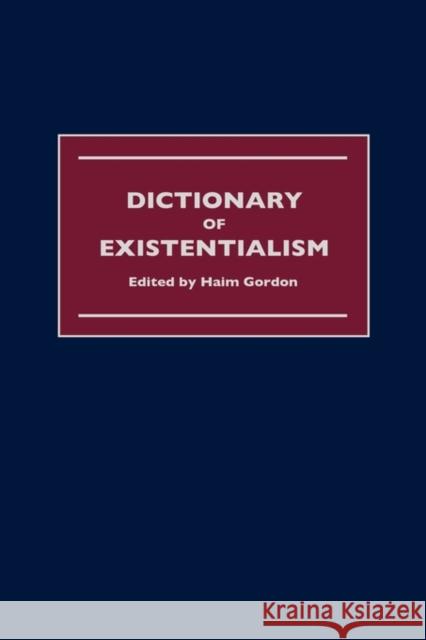Dictionary of Existentialism » książka
Dictionary of Existentialism
ISBN-13: 9781579581671 / Angielski / Twarda / 1999 / 552 str.
Dictionary of Existentialism
ISBN-13: 9781579581671 / Angielski / Twarda / 1999 / 552 str.
(netto: 676,35 VAT: 5%)
Najniższa cena z 30 dni: 654,86
ok. 16-18 dni roboczych.
Darmowa dostawa!
Existentialism, as a philosophy, gained prominence after World War II. Instead of focusing upon a particular aspect of human existence, existentialists argued that our focus must be upon the whole being as he/she exists in the world. Rebelling against the rationalism of such philosophers as Descartes and Hegel, existentialists reject the emphasis placed on man as primarily a thinking being. Freedom is central to human existence, and human relations and encounters cannot be reduced simply to thinking: the whole being is involved with the progress toward freedom. This dictionary provides - through alphabetically arranged entries - overviews of the various tenants, philosophers, and writers of existentialism - and of those writers/philosophers who, in retrospect, seem to existentialists to espouse their philosophy, such as Nietzsche and Kirkegaard.
Existentialism, as a philosophy, gained prominence after World War II. Instead of focusing upon a particular aspect of human existence, existentialists argued that our focus must be upon the whole being as he/she exists in the world. Rebelling against the rationalism of such philosophers as Descartes and Hegel, existentialists reject the emphasis placed on man as primarily a thinking being. Freedom is central to human existence, and human relations and encounters cannot be reduced simply to "thinking." This Dictionary provides--through alphabetically arranged entries--overviews of the various tenets, philosophers, and writers of existentialism, and of those writers/philosophers who, in retrospect, seem to existentialists to espouse their philosophy: Nietzsche, Kierkegaard, Dostoyevski, et al.











